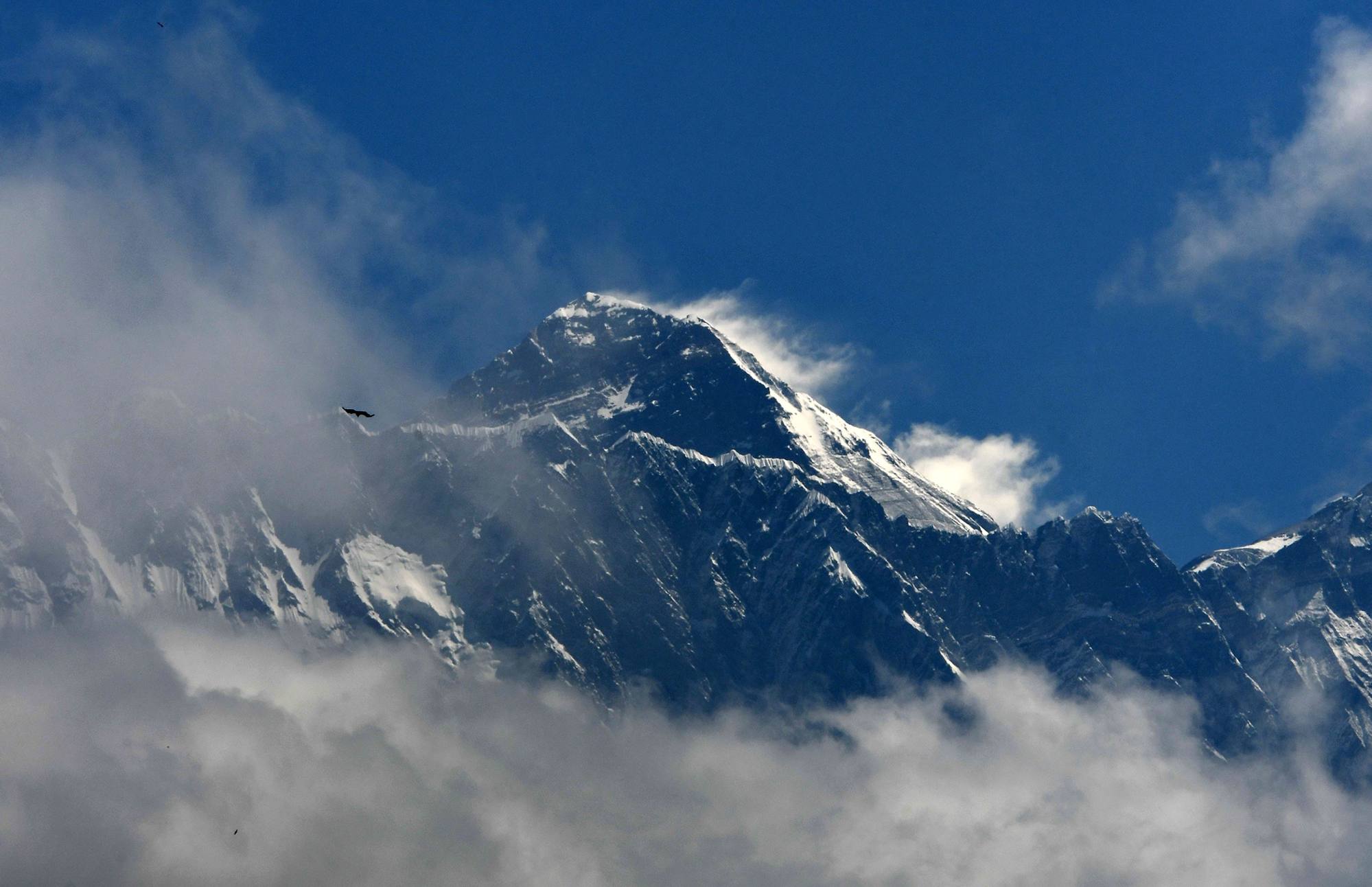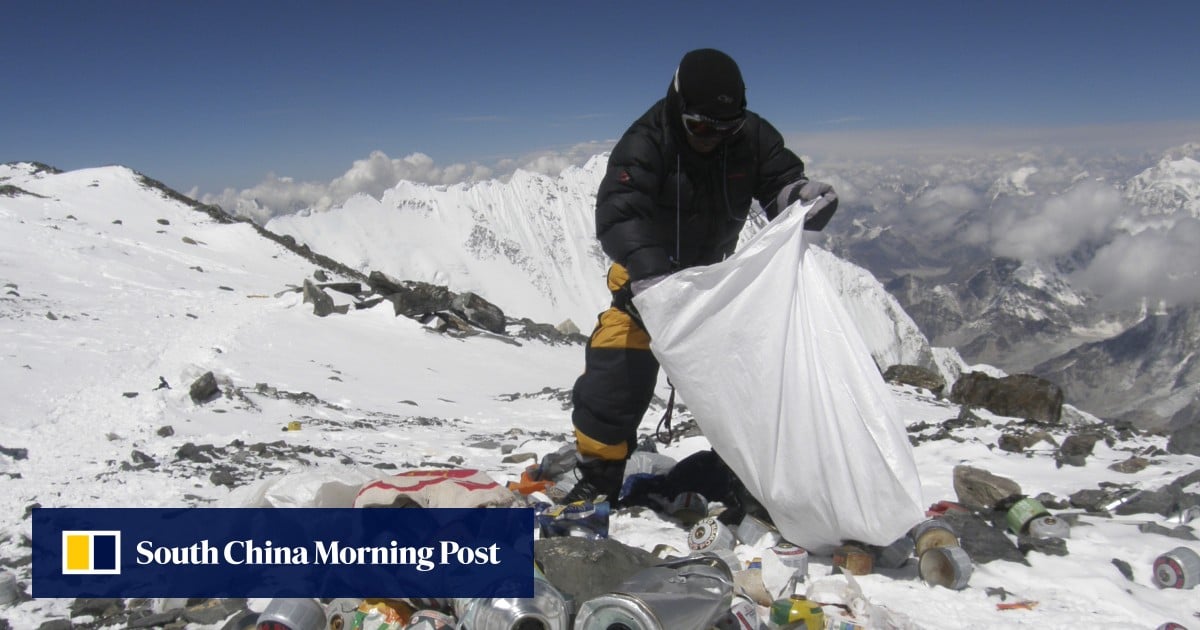Mingma Sherpa, the chairman of Pasang Lhamu rural municipality, which covers most of the Everest region, told BBC News that the new rule was introduced in response to unpleasant smells and unseemly sights in the area.
The extreme cold of Everest prevents faeces from fully degrading.
“Our mountains have begun to stink,” Sherpa told BBC News.
How deep is the snow on Mount Everest? A Chinese team has new answers
How deep is the snow on Mount Everest? A Chinese team has new answers
He added that it had also led to complaints that “human stools are visible on rocks and some climbers are falling sick,” which he said was damaging the municipality’s image.
At lower altitudes, climbers typically dig holes in the snow to dispose of waste. But at higher elevations, with limited snow cover, climbers are often forced to relieve themselves in the open, BBC News reported.
“Waste remains a major issue, especially in higher-up camps where you can’t reach,” Chhiring Sherpa, CEO of the non-government organisation Sagarmatha Pollution Control Committee (SPCC), told the news outlet.

He said his organisation estimates that there is around three tons of excrement between Camp One, at the bottom of Everest, and Camp Four, near the summit, per BBC News.
Half of that waste, he said, is at Camp Four, also known as South Col, which is at an altitude of around 26,000 feet.
The solution, authorised by the municipality, will see the SPCC procure about 8,000 poop bags from the US for the coming climbing season, which starts in March, BBC News reported.
The news outlet said that the bags contain chemicals and powders to solidify human waste and minimise the odour.
Nepal’s Kami Rita Sherpa scales Everest for record 28th time; death toll at 11
Nepal’s Kami Rita Sherpa scales Everest for record 28th time; death toll at 11
They will be available to purchase at base camp and will be checked upon their return, per BBC News.
According to National Geographic, trash has long been a significant problem on Mount Everest, with discarded oxygen canisters, tents, food containers, and faeces littering the slopes.
This not only harms the natural environment but also poses health risks to those living nearby, it said.

